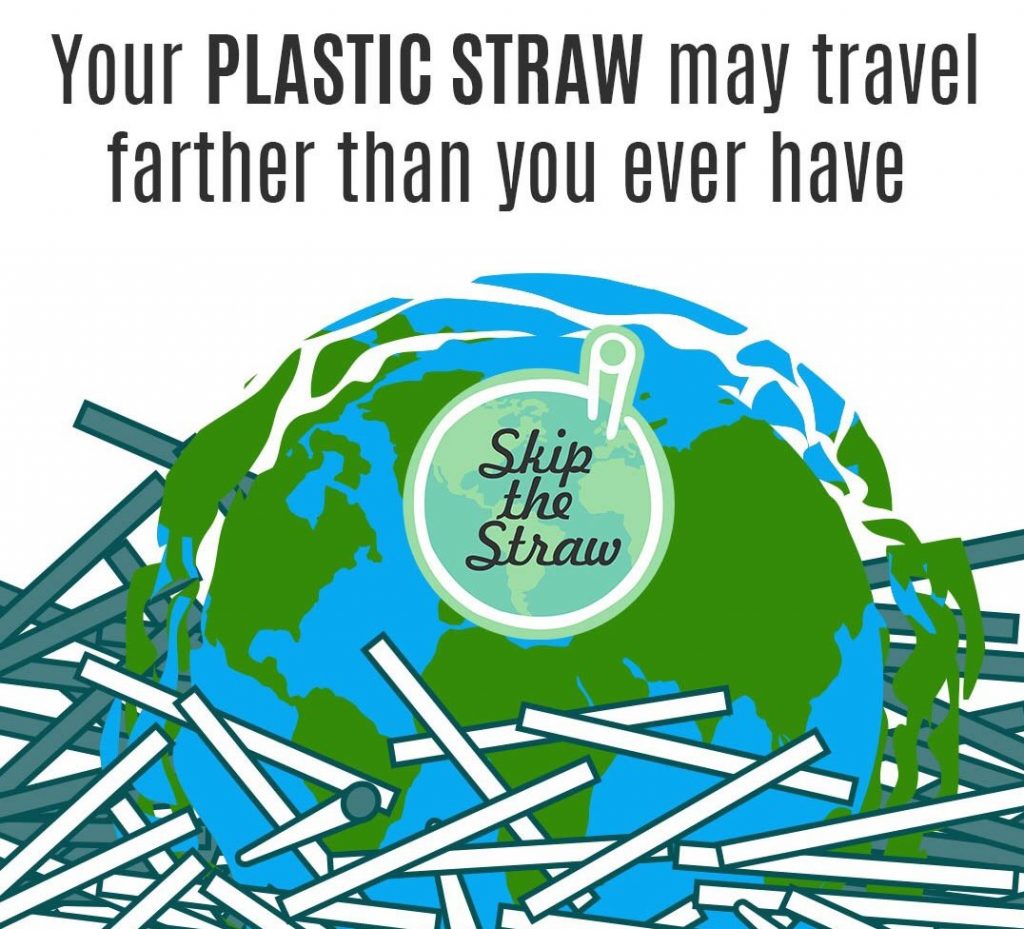National Skip The Straw Day
On the fourth Friday in February, The Coral Keepers ask you to consider a different way on National Skip the Straw Day! For thousands of years, humans have enjoyed slurping a refreshing beverage through a cylindrical tube. If Marvin Stone (the inventor of the first paper straw in 1888) were alive today, he might be shocked to know of the five large areas of the ocean, called gyres, where plastic garbage collects. The sea’s currents create vortexes trapping plastics, and in the collection are plastic drinking straws.
Straws and other plastics cause harm to marine life in many ways. Birds, fish, and other sea life consume plastics accidentally or when they mistake it for food. Plastics don’t biodegrade. They break down into smaller and finer, microscopic pieces. When plastics break down, they produce bisphenol A (BPA) which interferes with reproductive systems in marine life. It also produces a styrene monomer which is a suspected carcinogen.
According to the National Park Service, Americans use 500 million drinking straws daily! So, on National Skip the Straw Day that’s potentially 500 million fewer straws that don’t end up in landfills or the ocean.
We can give you all sorts of other statistics to convince you to Skip the Straw on National Skip the Straw Day (and on other days), but we would rather show you how.
National Skip The Straw Day History
The Coral Keepers, students at Whitehall Middle School in Whitehall, MI, along with their advisor, Susan Tate, founded National Skip the Straw Day in 2017 to encourage Americans to give up the straw habit and help spread awareness about the damage caused by disposable plastics. The Registrar at National Day Calendar® declared the day to be observed annually on the fourth Friday in February.
5 FACTS ABOUT OCEAN POLLUTION THAT’LL MUDDY YOUR WATERS
-
Oil spills aren’t enemy number one
In reality, oil spills make up only 12% of ocean pollution while three times as much oil runs into the ocean from roads, drainpipes, and rivers.
-
Garbage patches are a thing now
There’s so much plastic pollution in the ocean that garbage patches have begun to form — there are at least five known patches where the motion of the ocean has compacted a large quantity of waste into one small area.
-
Sounds matter
The sound generated by shipping and military activity harms and disrupts the peaceful sea creatures swimming below the surface.
-
Some stuff sinks
While there are efforts happening currently to clean the ocean’s surface of floating plastics, a lot of trash sinks to the ocean floor, where it’ll likely never be retrieved as efficiently.
-
More trash than treasure
With plastic waste being dumped into the ocean at a rate of 17.6 billion pounds per year, it’s projected to outnumber fish in the sea by 2050.
NATIONAL SKIP THE STRAW DAY DATES
| Year | Date | Day |
|---|---|---|
| 2021 | February 26 | Friday |
| 2022 | February 25 | Friday |
| 2023 | February 24 | Friday |
| 2024 | February 23 | Friday |
| 2025 | February 28 | Friday |
| 2026 | February 27 | Friday |



